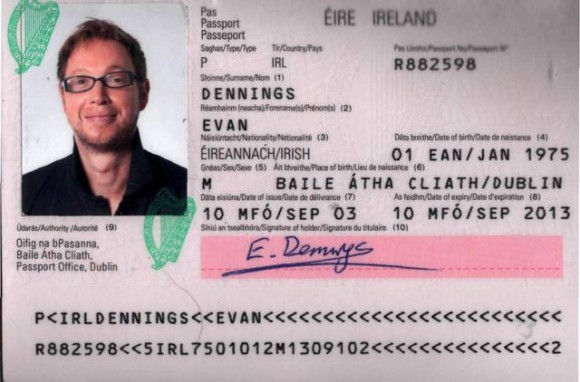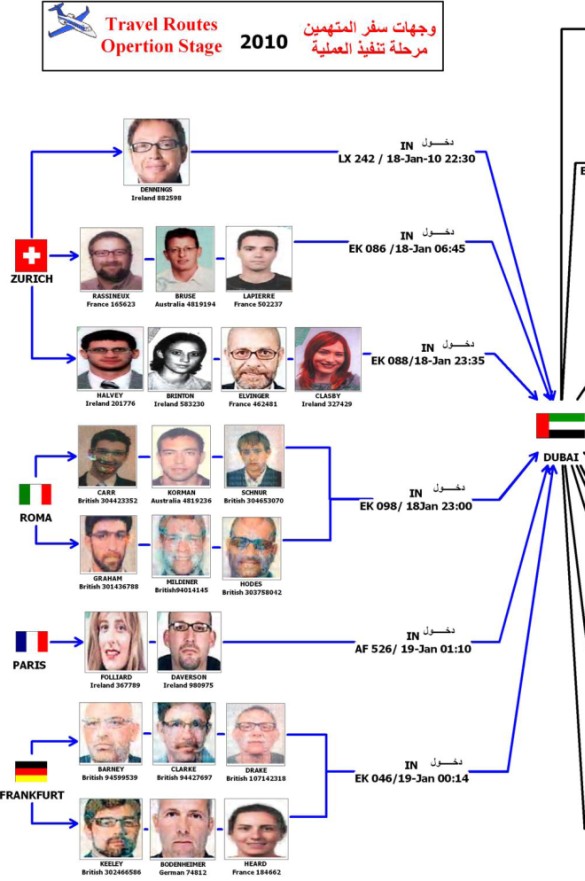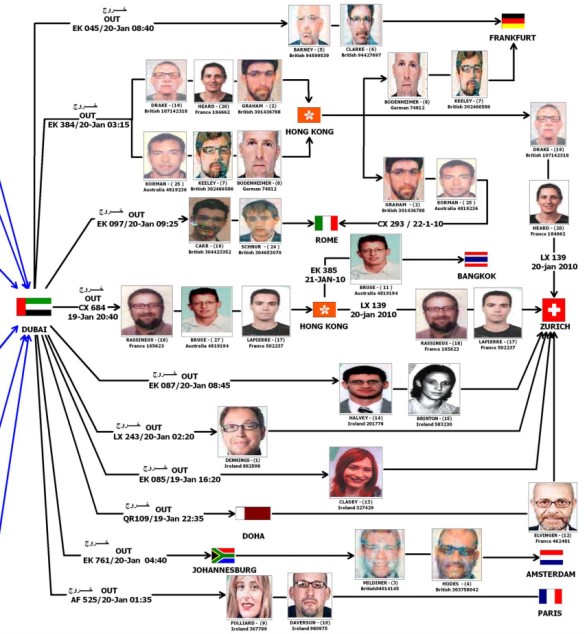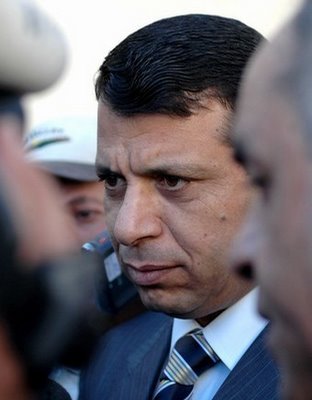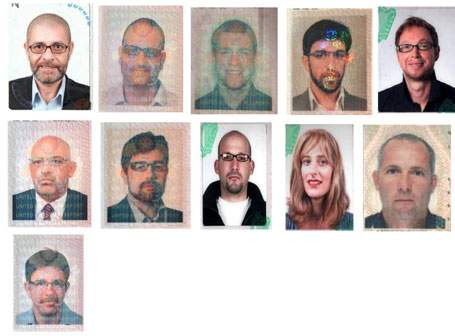The idea that Israel could be involved in supplying weapons to Hamas might sound like a preposterous conspiracy theory, but let’s look at some connections — the theory might not be as wild as it sounds.
In undisputed reports, Mahmoud al-Mabhouh has been described as the top Hamas commander responsible for coordinating the flow of arms into Gaza. He is said to have established a smuggling route through Sudan — a route upon which a convoy of weapons was intercepted and destroyed in an Israeli drone attack just over a year ago.
From accounts of Mabhouh’s killing we know that he bought his ticket to Dubai just two days before traveling there and within just a few hours of his departure from Syria, an assassination team was en route to the same destination. Nineteen hours before the assassination, fifteen operatives left on flights for Dubai, departing from France, Germany, Switzerland and Italy. The Times reported that Mabhouh was “tracked from the moment he boarded Emirates flight EK 912 at Damascus at 10.05 on January 19.”
I said “an assassination team” but from hereon I’ll refer to them as the Mossad operatives. Until one of them is arrested and the Israeli government starts negotiating for his or her release, we won’t know with absolute certainty that this was a Mossad operation, but I’ll go with the Dubai police chief and say that we can be 99% sure.
The British and Irish governments would not haul in the Israeli ambassadors in London and Dublin to demand an explanation for the theft of their citizens’ passports simply on the basis of a rumor. Indeed, if Israel had been set up by one of its enemies, as some Israeli leaders have suggested, then Israel too would be launching an investigation into the breach of its own passport records. As well as being concerned about a serious security breach, Israeli would have every reason to want to pacify the concerns of those citizens who now fear that they are being placed at risk by their own government — Israelis such as Anshel Pfeffer, who writes:
Enough cases in the past have come to light in which the identities of Jews, most of whom were born outside of Israel, were used by Israeli secret agents. It is hard not to feel that there has been and still is a blatant disregard for the safety and privacy of those whose identities were used… [H]ow can Israel claim to be a democracy fighting terror and dictatorships, and continue to promote aliyah from Western countries, when this is the way it supposedly treats its citizens?
Far from allaying such anxieties, Israeli officials have thus far seemed much more interested in gloating over an operational success. “Mossad knows how to get the job done,” said one minister, while the Israeli embassy in London, though claiming ignorance about the assassination, saw fit to brag on Twitter about the “hit on #Dubai target”.
So let’s return to the sequence of events. There is compelling evidence that the Mossad operatives who killed Mabhouh had plenty of lead time. Indeed, there’s reason to suppose that rather than this being a strike provided by an opportunity, it was a carefully laid trap that the Hamas commander walked straight into.
We know that he left Damascus confident enough for his security detail to face an acceptable delay. This was no blind date. Yet the information released by Dubai suggests that the only people he met once he got there were his killers. Did he miss his contact or did his contact turn out to have deceived him?
It is now reported that Israel provided British intelligence with advance notice of an “overseas operation” that would involve the use of fake British passports. A Mossad officer said Britain’s Foreign Office was also informed hours before Mabhouh’s murder.
If word was out among intelligence agencies, it would come as no surprise if Dubai was also conducting its own surveillance operation. A review of the CCTV images they released, along with the speed with which they identified the members of the Mossad team, does indeed suggest that to some degree they were able to track events as they unfolded and not merely piece together the evidence after the fact.
In some of the videos, the camera appears to be tracking its subject — a mere coincidence that the individuals walked in the same direction the camera was moving? Perhaps.
In the montage of clips put together by Gulf News‘ GNTV, there is another intriguing element. At 13 minutes 40 seconds we see one of the suspects exiting his hotel. The caption reads: “16.14 [local time, January 19] Kevin leaves the hotel and heads towards Al-Bustan Rotana.”
As “Kevin” is stepping into a taxi, a large man — he looks like an American — in jeans, pale blue t-shirt and dark blue jacket, strolls up as the next in line for a taxi. In the video his face has been digitally obscured. Why? Did he have Kevin under surveillance or might he be one of the thus far unnamed suspects?
In all of the video sequences there is only one other individual whose identity is obscured. This comes at 20 minutes 37 seconds in the montage. Kevin is speaking on a cell phone, strolling back and forth in front of the elevator doors in the lobby adjacent to Mabhouh’s room. A large individual exits the right side elevator and engages with Kevin, then exits the lobby walking in the direction of the crime scene. Throughout the sequence the individual’s image has been digitally obscured. In general appearance he looks like an over-weight middle-aged American.
We know that five credit cards issued by American banks were used in the operation. There is an American element to this story that so far remains veiled.
So, keeping in mind all of the above, how do I come to my audacious claim that Israel has been helping supply Hamas with weapons? This doesn’t have to be quite as conspiratorial a theory as it sounds.
The bombing of the Sudan convoy suggests that Mabhouh’s supply network was infiltrated some time ago and though Israel’s much-repeated goal is to stop the flow of weapons into Gaza, the weapons themselves are perhaps less of a concern than is finding the means to weaken or disable Hamas.
What better way of infiltrating the Islamist movement than through its weapons supply chain?
If the Iranian arms dealers in Dubai have been conspicuous by their absence from this story, perhaps it’s because the trap Mabhouh fell into involved Israelis posing as Iranians.
After all, the involvement of governments in illicit arms dealing for political purposes is not unheard of — one of Israel’s closest friends, Elliot Abrams, knows the routine.
Further comment: As presented by Israeli leaders the issue of Gaza is without deviation always treated as a security threat. Gaza, under Hamas’ control presents a threat to southern Israel as in recent years cities such as Sderot have come under persistent rocket attack.
How then is it conceivable that Israel would allow a single weapon to find its way into the Palestinian enclave even if there might be an intelligence payoff from being able to infiltrate and monitor a weapons supply chain?
Wrong question. If Israel really wanted to effectively control the flow of weapons into Gaza it would never have imposed a blockade that resulted in the construction of thousands of smuggling tunnels under the Rafah border.
The surest way of rigorously controlling what gets into Gaza is through a stringently monitored open border. If goods could be brought in overland, there would be little economic incentive for constructing tunnels.
Rather than preventing the flow of weapons, Israel’s greater interest has been in punishing the Palestinian population in the naive hope that people living in great deprivation would turn against their political leaders.
Israel, confident in its ability to use overwhelming force to crush its opponents, has less interest in disarming the Palestinians than it does in breaking their will to fight.
… a person who said he met Tal a couple of times but did not want to be named told Gulf News that “there is no question in my mind that Yuval has contacts with [Israel’s spy agency] Mossad”.
Payoneer is held by three venture capital firms: Greylock Partners, Carmel Ventures, and Crossbar Capital.

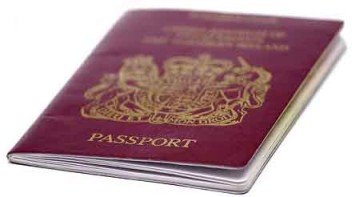 Nevertheless, there is now reason to think that with the murder of Mahmoud al Mabhouh in Dubai, Israel crossed a line that strains the limits of Western tolerance. Western governments would have paid scant attention to this event were it not for one egregious error by Mossad: its flagrant disregard for the integrity of foreign passports.
Nevertheless, there is now reason to think that with the murder of Mahmoud al Mabhouh in Dubai, Israel crossed a line that strains the limits of Western tolerance. Western governments would have paid scant attention to this event were it not for one egregious error by Mossad: its flagrant disregard for the integrity of foreign passports. Israeli leaders such as Israel’s minister of industry, trade and labor,
Israeli leaders such as Israel’s minister of industry, trade and labor, 